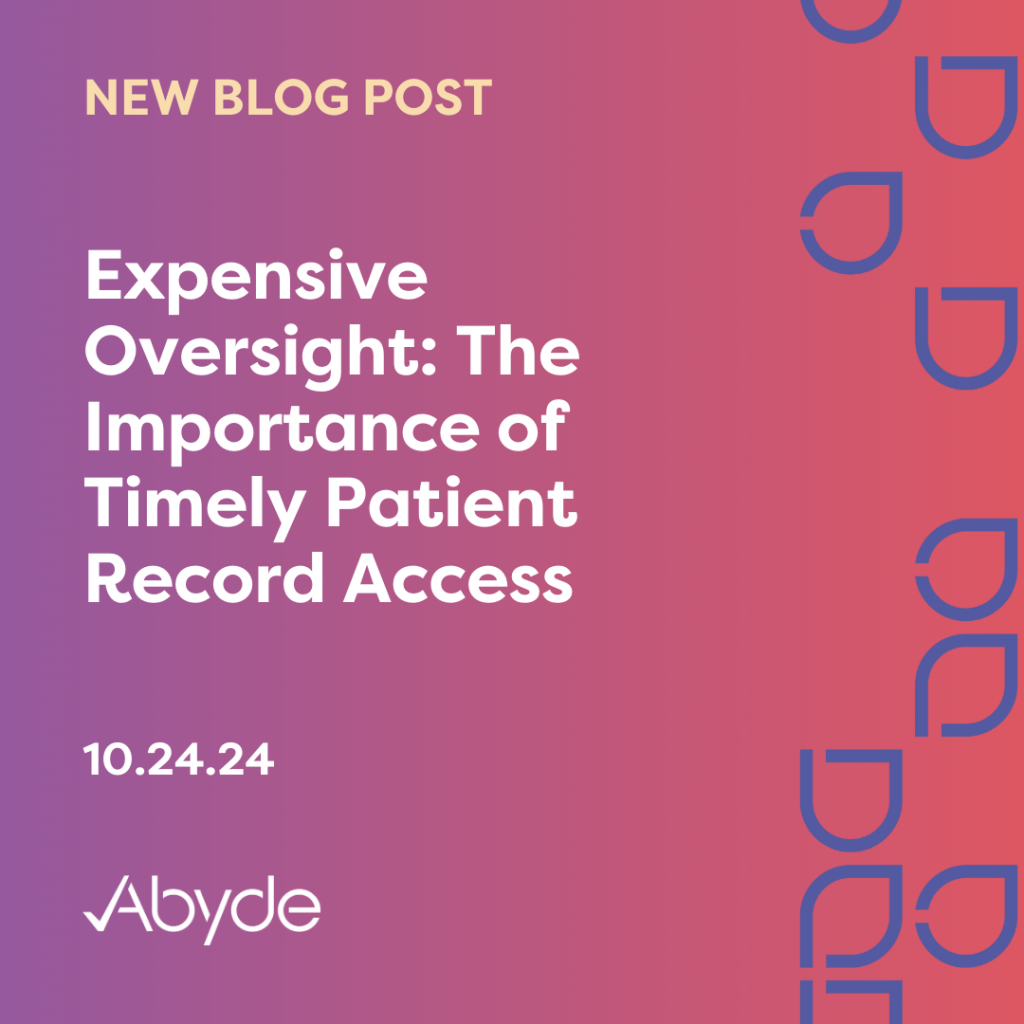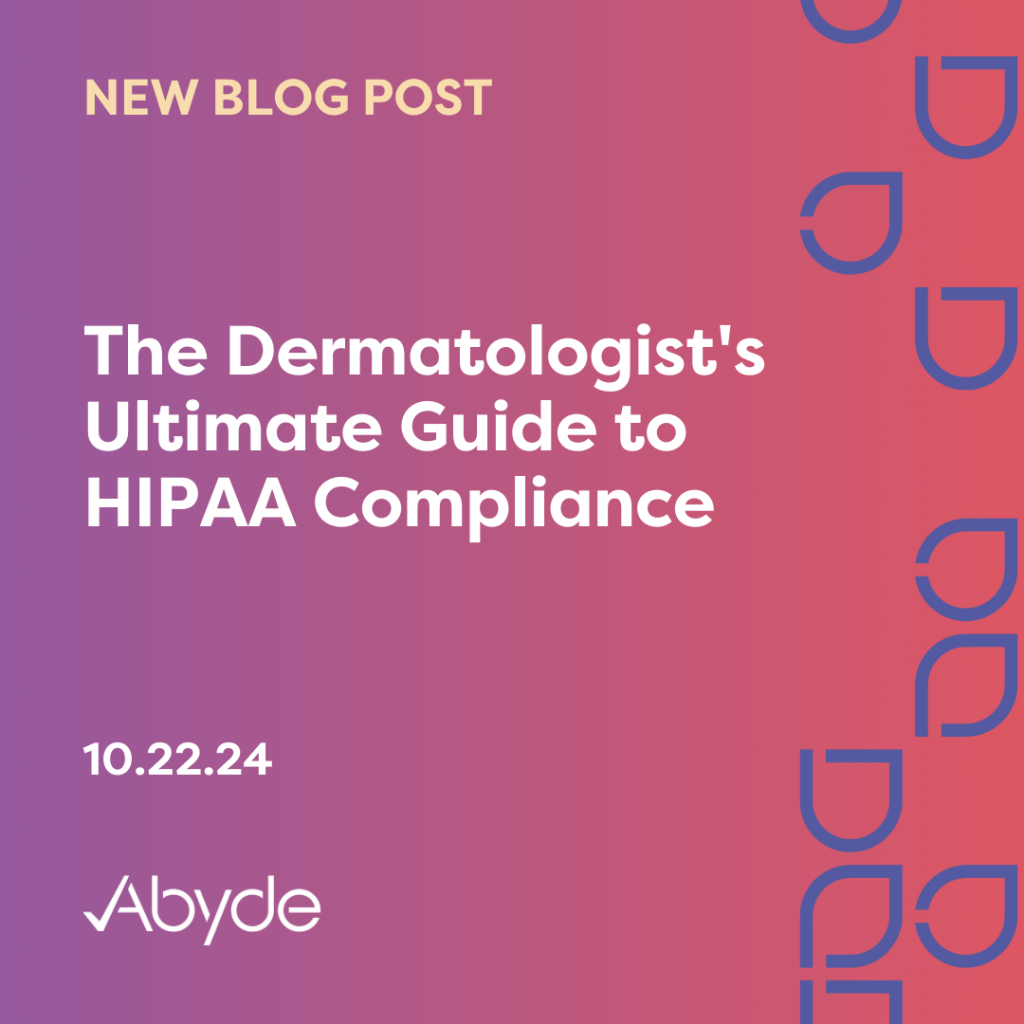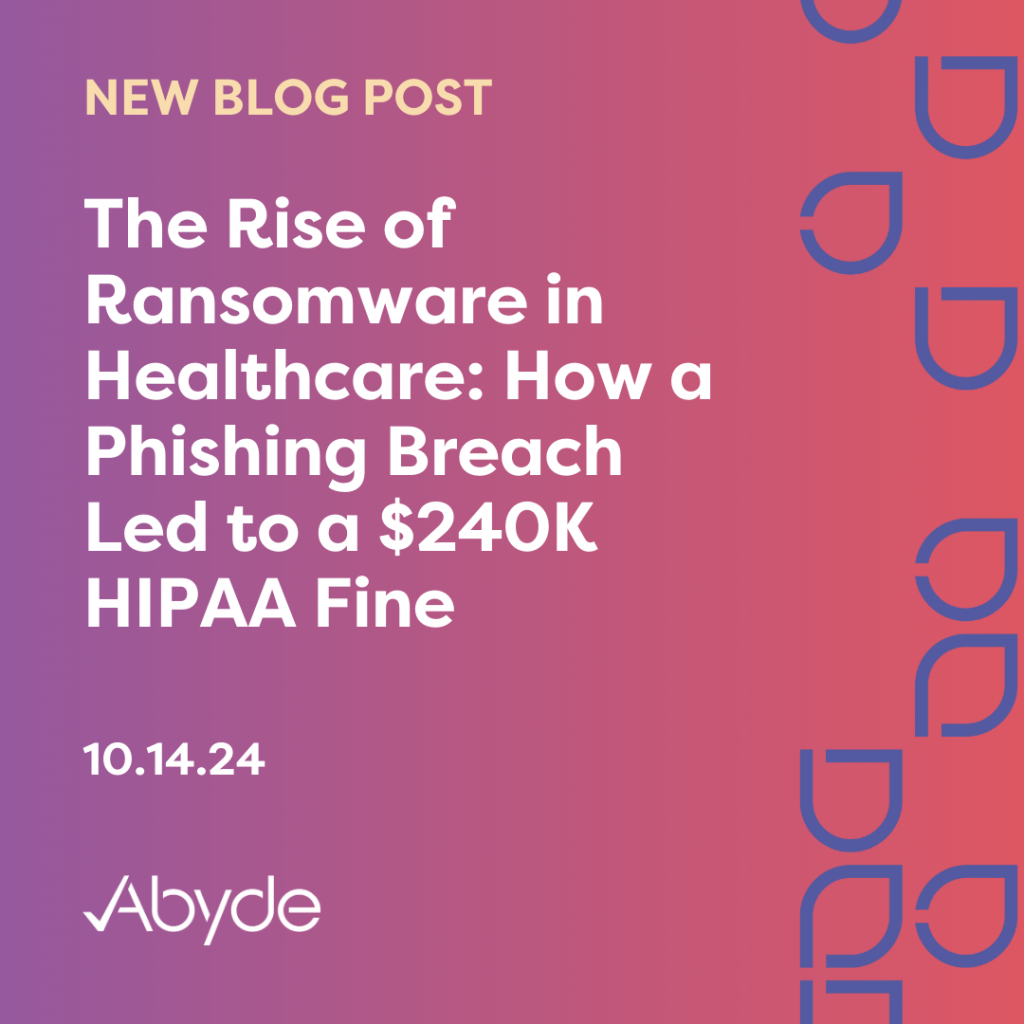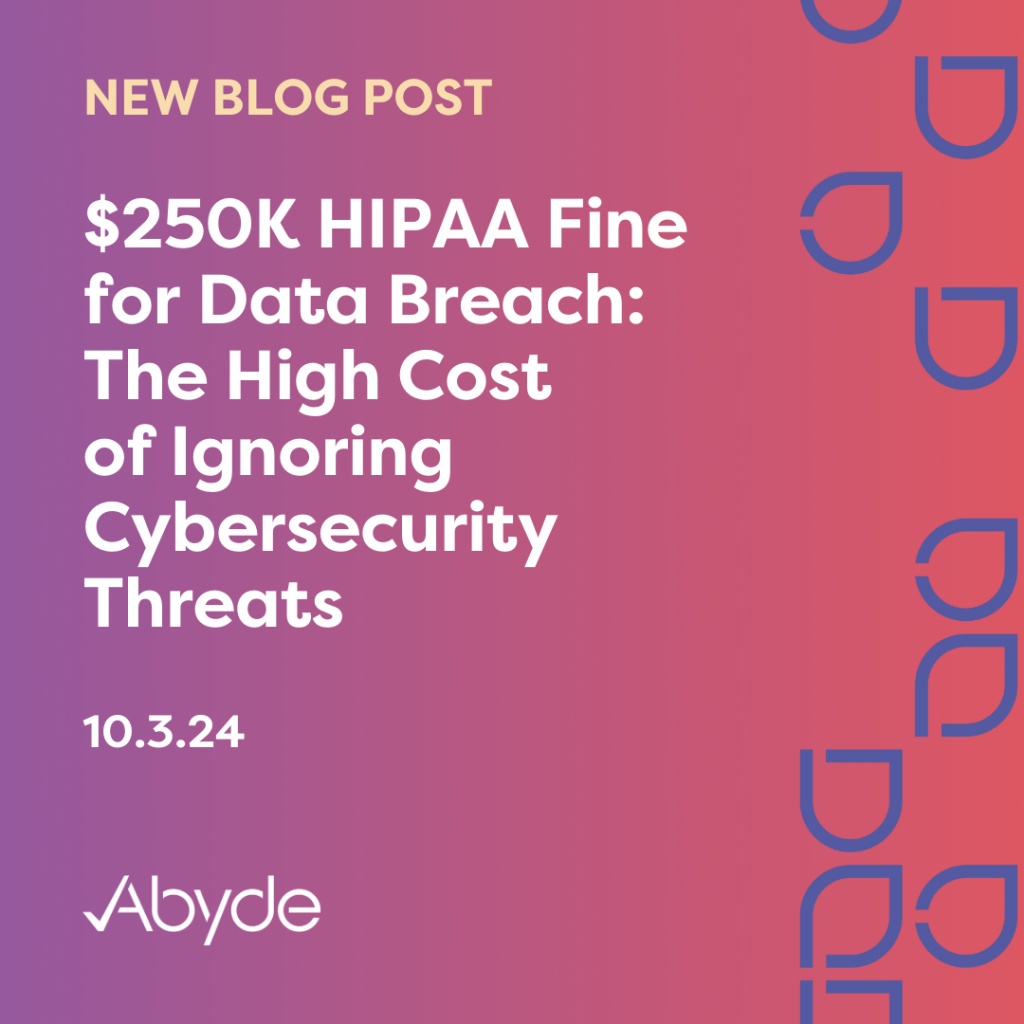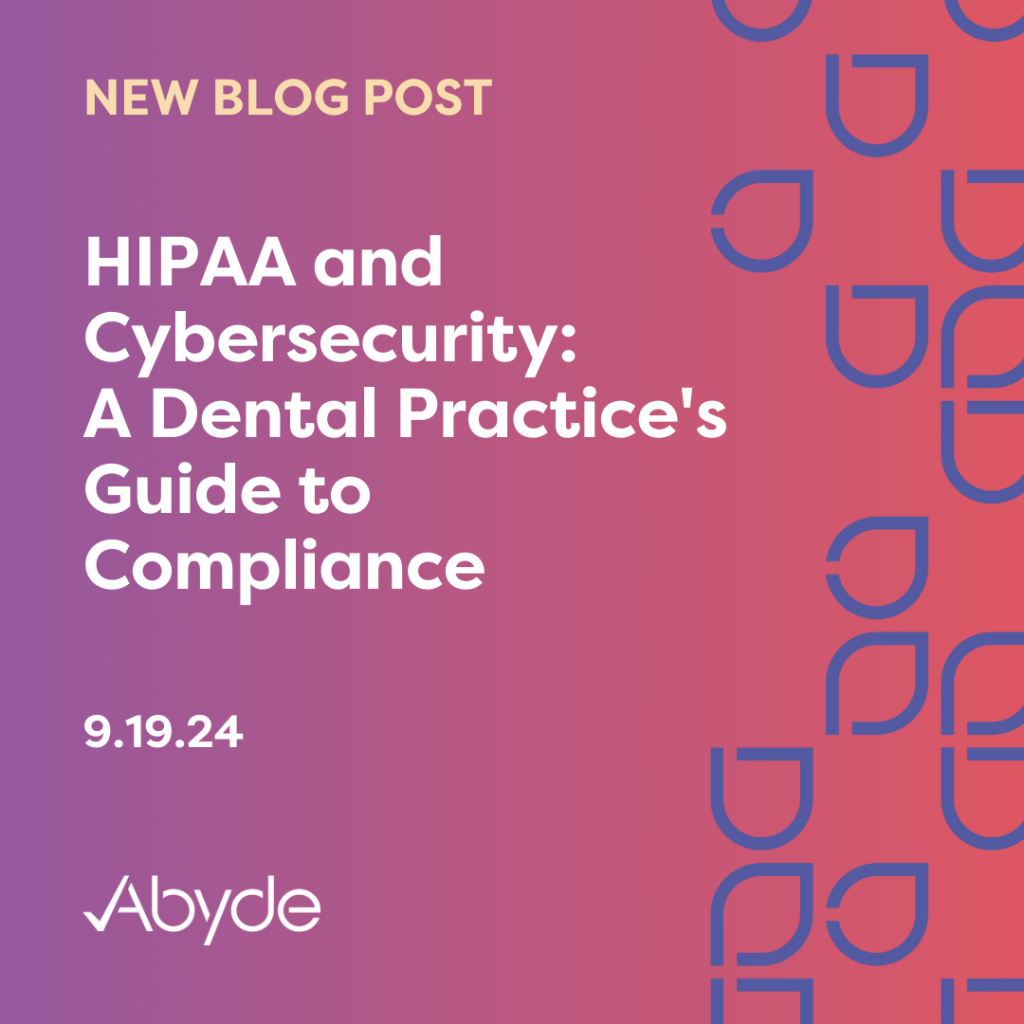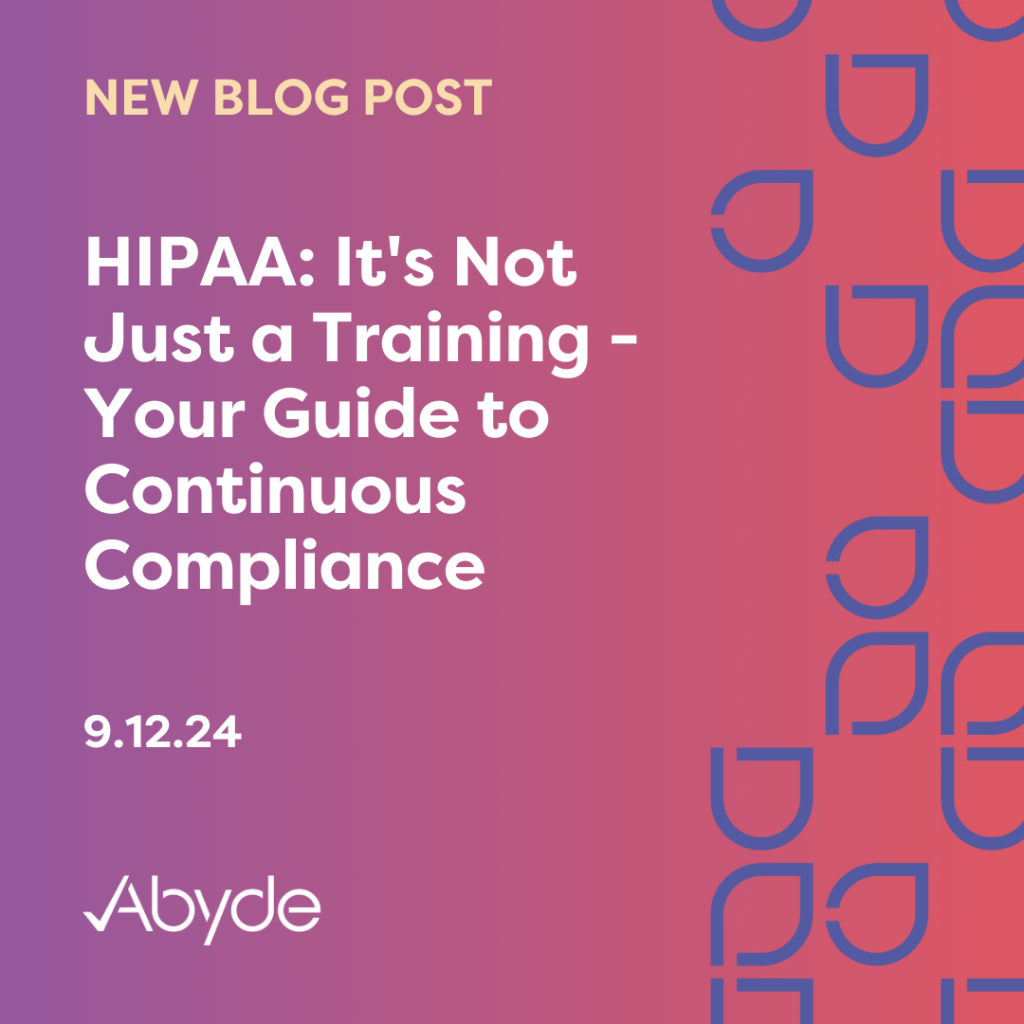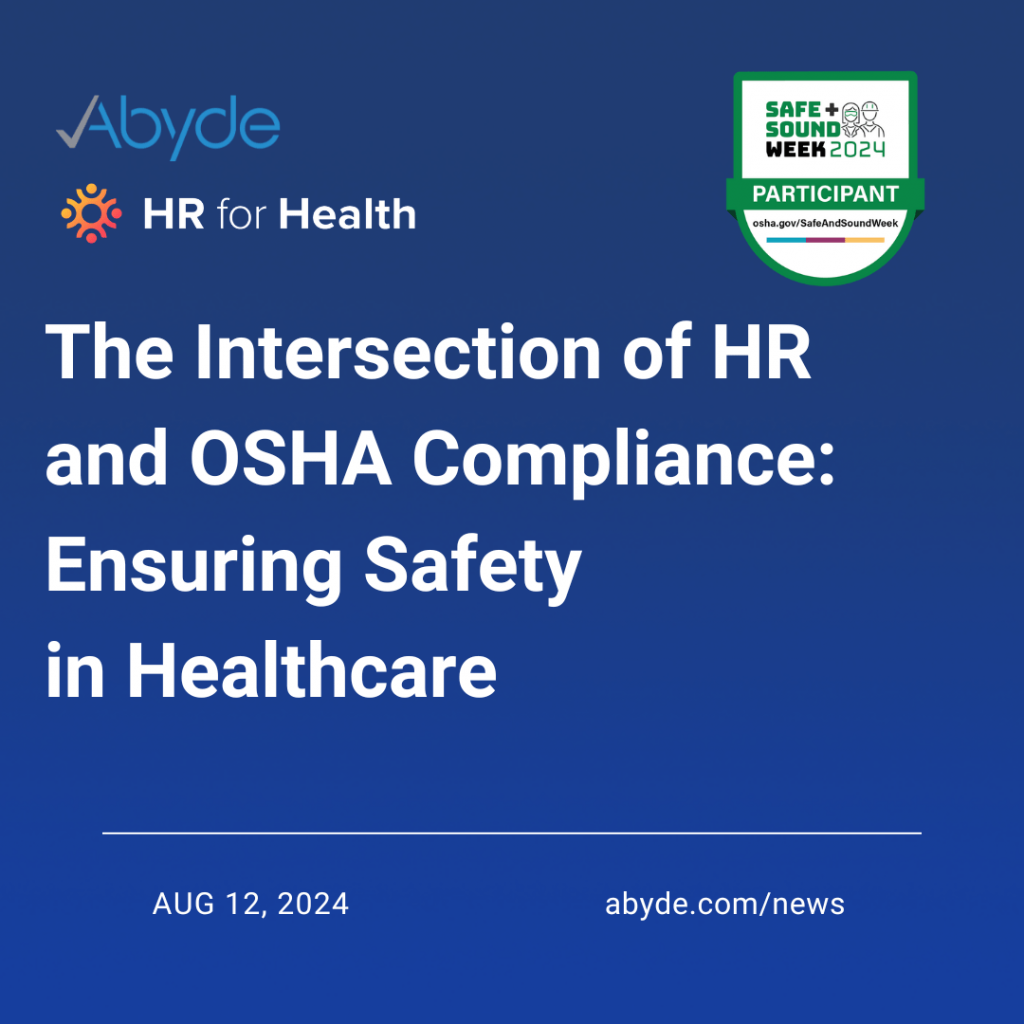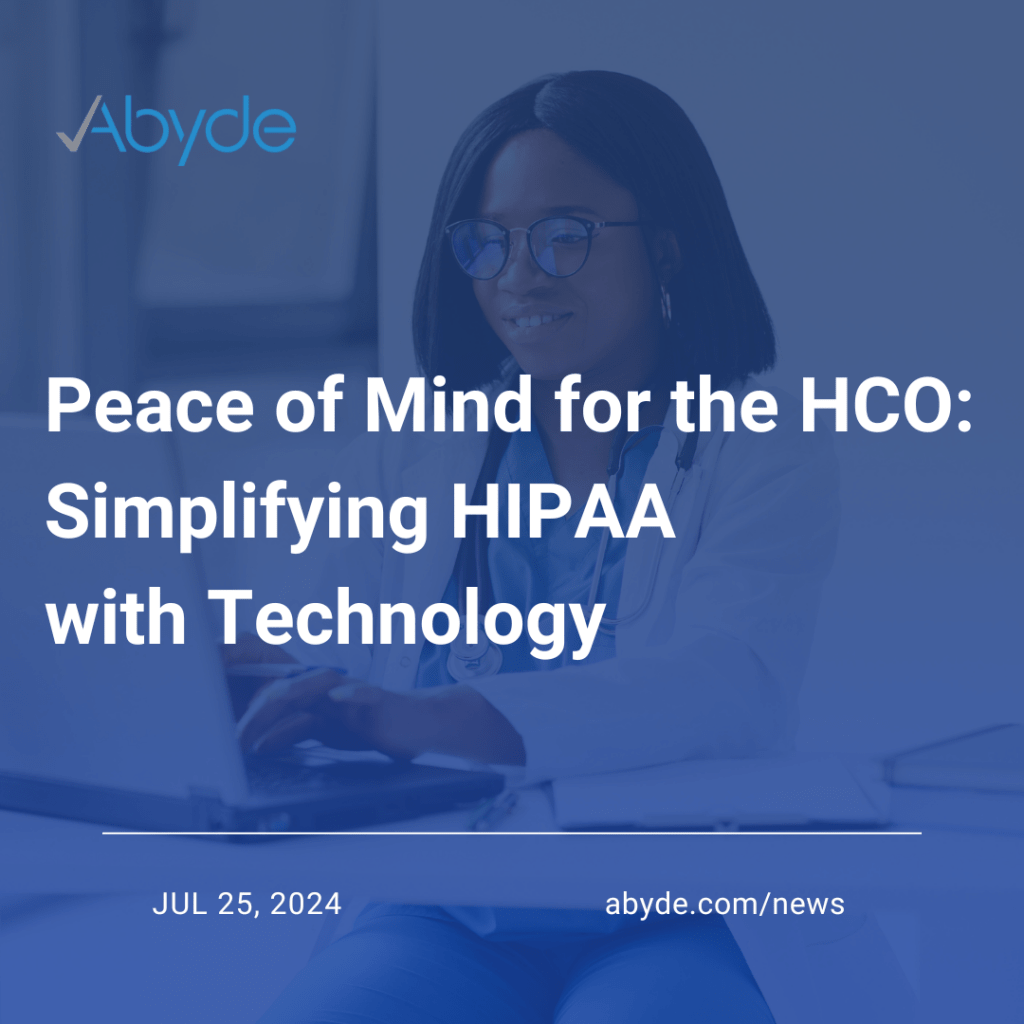October 24, 2024 There has been a flurry of HIPAA fines in the past few weeks, with over half a million dollars levied in the last month. Just one example is Gums Dental Care, LLC, a small dental practice in Maryland that was fined for a Right of Access violation. Right of Access violations, which involve failing to provide medical records in a timely manner, are a common HIPAA mistake. Another violation for this was issued in August. What Happened? A patient requested her medical records from Gums Dental on April 8, 2019. After not receiving them, she issued a complaint to the OCR in May 2019. The OCR contacted Gums Dental Care for technical assistance and believed the case was over. This was just the beginning. This case spanned years, with a second complaint filed in August 2019 and the OCR sending several data requests through letters and calls to Gums Dental. On October 1, 2020, the OCR sent Gums Dental a proposed resolution agreement and corrective action plan. At the end of the month, Dr. Gumbs wanted to present her case in front of a judge, believing the patient would commit Medicaid fraud with her records. She also said that the complainant didn’t pay a $25 administrative fee to release the medical records through mail. First, patients should always have access to their medical records, regardless of their reasons. Second, the fee would be waived if the patient requested it digitally, not through mail. In December 2020, the OCR issued a Letter of Opportunity to Gums Dental. At the beginning of the next year, Dr. Gumbs once again justified her refusal to provide the records since she believed her patient would commit a crime with them. She also believed her website wasn’t secure enough to send them digitally. However, Gums Dental didn’t attempt to send the records at all. By the time the Notice of Proposed Determination was sent in March 2022, roughly three years after the first medical record request, Gums Dental faced a Civil Monetary Penalty fine as high as $7,676,692. However, the OCR ultimately levied a $70,000 fine, recognizing the smaller size of the dental practice. How to Protect Your Practice Common HIPAA fines often involve Right of Access violations. At the federal level, practices are required to provide patients with their medical records within 30 days, and some states have an even shorter timeline. Navigating these unique regulations can be challenging, so having an intelligent solution is crucial. Smart software can streamline compliance for your practice by generating policies and procedures tailored to your needs. These solutions also include access to a team of compliance experts who can help answer your questions and ensure that you are interacting with patients in a HIPAA-compliant manner. To learn more about software solutions, with a compliance expert here.
The Dermatologist’s Ultimate Guide to HIPAA Compliance
October 22, 2024 Did you know that a dermatology center was fined over $300,000 for violating HIPAA? HIPAA compliance is not always top of mind when managing your dermatology practice. Administrative tasks can easily take a back seat with a focus on diagnosing and treating skin conditions. Nevertheless, it’s crucial to prioritize HIPAA compliance. Discover what steps you need to take to ensure the safety of your dermatology practice. What’s Protected Health Information? Protected Health Information (PHI) is sensitive data that can personally identify a patient. Examples of PHI include a social security number, birth date, medical records, and even images of skin ailments for dermatologists. These images can contain personally identifiable information, such as tattoos and unique birthmarks. When working with patients, it’s crucial to ensure all images and other forms of PHI are encrypted and protected behind essential safeguards to secure patient information. Social Media 101s When sharing images of your patient’s treatment, such as before-and-after images of acne treatment, it’s important to do so compliantly. While you might think you’re sharing a feel-good story, patient images are considered Protected Health Information (PHI), and sharing them without consent could violate their privacy. You need the patient’s signed media consent form to share these images and patient reviews on social media compliantly. This form ensures that the patient understands and agrees to use their image and treatment details being shared with the public. Improper Disposal The largest dermatology HIPAA fines, totaling over $300,000, were imposed due to improper disposal. Some states have even stricter laws regarding discarding old patient files, which must be retained for at least six years on a federal level. These files also need to be encrypted throughout the creation to disposal process. When getting rid of sensitive information, ensure it is shredded and properly disposed of. Partner with a disposal company specializing in medical paperwork and waste and have a Business Associate Agreement in place. How Software Solutions Can Help Dermatology helps patients feel comfortable in their own skin, both literally and figuratively. Implementing the appropriate safeguards to protect patients’ data is just as important. By utilizing smart software, you can see where your dermatology practice stands and what you need to do to be compliant. To learn how you can protect your dermatology practice, schedule a consultation with an expert.
The Rise of Ransomware in Healthcare: How a Phishing Breach Led to a $240K HIPAA Fine
October 14, 2024 Unfortunately, the future of data breaches is ransomware, accounting for nearly two-thirds of data breaches. As ransomware remains a significant threat in the healthcare sector, another HIPAA fine has been issued concerning a ransomware incident. Recently, a healthcare organization was fined $240,000 following ransomware attacks, including phishing, that compromised the Protected Health Information of over 85,000 patients. What happened? The Center of Orthopaedic Specialists merged with Providence Medical Institute, a healthcare system in southern California. In February 2018, during the transition, an employee clicked on a malicious link from a phishing attempt, which encrypted over 85,000 files with ransomware. Subsequently, two more successful ransomware attacks were launched on the already vulnerable IT system. Between these attacks, PMI restored data using backup tapes. In the final ransomware attack, the malicious actors used stolen credentials from previous attempts to remotely access PMI’s systems. What could they have done? After the breach, several cybersecurity mistakes that affected almost 100,000 patients were brought to light. Before merging with PMI, the Center of Orthopaedic Specialists partnered with another IT company, Creative Solutions in Computers. However, PMI failed to sign a Business Associate Agreement with the IT company during the transition, a crucial HIPAA requirement. This agreement ensures that both parties understand and take the necessary precautions to protect PHI. Furthermore, PMI made numerous IT and cybersecurity mistakes, such as sharing logins, not properly separating private networks from public networks, failing to monitor access controls, and not encrypting ePHI, which allowed anyone with access to view it. The lack of proper IT infrastructure, which could have been easily avoided, significantly impacted numerous patients. What’s next? After the recent HIPAA fine, it’s crucial for your practice to take the necessary precautions and implement cybersecurity measures to safeguard your patients’ data. When establishing a culture of compliance for your practice, using smart software solutions can help you assess your practice’s status and offer efficient solutions to meet requirements, such as electronically managed Business Associate Agreements. To find out more about how intelligent software solutions can protect your practice from cyber attacks, schedule a consultation with a compliance consultant.
$250K HIPAA Fine for Data Breach: The High Cost of Ignoring Cybersecurity Threats
October 3, 2024 Ransomware remains a significant threat to the healthcare industry, causing nearly two-thirds of data breaches. The Office for Civil Rights imposed a $250,000 HIPAA fine on Cascade Eye and Skin Centers, which provides ophthalmology and dermatology care in Washington state. This fine highlights the ongoing impact of ransomware attacks on the healthcare sector and emphasizes the importance of protecting medical practices. What Happened? In May 2017, hackers held almost 300,000 electronic Protected Health Information (ePHI) files at Cascade Eye and Skin Centers for ransom. The practice lacked essential safeguards, such as a thorough Security Risk Analysis and effective data access monitoring, leaving patient data vulnerable to malicious actors. The Aftermath The $250,000 fine is a stark reminder of the OCR’s commitment to enforcing HIPAA compliance against cybercrimes. Several ransomware fines have been levied in the past year, and unfortunately, this trend is expected to continue as ransomware attacks against healthcare organizations rise. In addition to the substantial fine, the practice is subject to a Corrective Action Plan (CAP), with the OCR overseeing Cascade Eye and Skin Centers as it implements necessary initiatives and measures to safeguard its operations from cybersecurity breaches. Protecting Your Practice While no healthcare practice can be completely immune to cyber threats, there are proactive steps you can take. By implementing preventive measures, you can stop cyberattacks before they impact your practice. Implementing a comprehensive Security Risk Analysis can help identify vulnerabilities and inform your risk management strategy, providing a comprehensive overview of what your practice currently has in place. Encrypting data provides another layer of protection by making it inaccessible to unauthorized individuals. Firewalls and antivirus software can also act as barriers to malicious attacks. Beyond technical safeguards, a well-developed Disaster Recovery Plan is essential for minimizing the impact of a breach. Having a plan in place can help ensure a swift and effective response to incidents and limit disruption to patient care. Remote access and support capabilities can also be critical in managing compromised systems and restoring operations quickly. As technology continues to transform the healthcare industry, your compliance program should also evolve. By utilizing automated software, you can streamline compliance efforts, receive expert guidance, and stay informed about the latest cybersecurity threats. Schedule a consultation with a compliance expert to learn more about how software solutions can help protect your practice.
HIPAA and Cybersecurity: A Dental Practice’s Guide to Compliance
September 19, 2024 Did you know that medical information is one of the most valuable pieces of information for hackers to obtain? A health record sells for ten times the amount compared to a credit card on the dark web. In today’s digital world, technology has brought significant advancements to how dental practices operate, from communicating with patients to reviewing dental records. However, it has also introduced new challenges related to practice safety. Implementing strong cybersecurity measures is crucial for protecting your patients. Let’s dive into how to safeguard your practice and keep your patients safe in today’s cyber world. Complete a Security Risk Analysis (SRA) A requirement under HIPAA, the Security Risk Assessment (SRA) sets a benchmark for your dental practice’s compliance. The SRA highlights risks your practice might face, including technical safeguards and recommended cybersecurity measures. By monitoring the existing measures, you can identify non-compliant gaps and learn best practices to better protect your organization. Establishing a strong foundation for your practice brings you one step closer to HIPAA compliance by showing you how to keep your patient data secure. Establish Access Controls One of the most common HIPAA violations is improper access to electronic Protected Health Information (ePHI). Robust access controls are essential to prevent this. Each staff member should have a unique login with permissions strictly aligned to their job duties. These logins should also require staff to change their passwords periodically, including at least eight characters with symbols, numbers, and lowercase and uppercase letters. This safeguards sensitive patient data and facilitates effective monitoring for potential security breaches. Additionally, monitoring employee activity helps ensure access privileges are used appropriately. Encrypt all ePHI Encryption, or encoding data so that it is unreadable by unauthorized users, is a staple of having strong cybersecurity measures in place for your practice. It should be used on all devices storing sensitive data and facilitating patient communication, ensuring that only authorized individuals can access it. Encrypted data and devices can protect sensitive information if a work laptop falls into the wrong hands. Another cybersecurity best practice is to enable remote deletion on the computer so that it can be wiped from another functioning device. Overall, encryption serves as an additional barrier to protecting patient data and keeping sensitive information secure in dental practices. Ensure Adequate Cybersecurity Training for All Staff It is crucial to ensure that staff understand expectations and cybersecurity best practices to keep patient data safe. Training is important to help staff understand how to handle sensitive information and how to share ePHI (electronic protected health information) securely. Thorough training will empower staff to maintain the security of patient data and uphold the best cybersecurity practices, helping create a culture of compliance in your practice. Outsource IT Automating your HIPAA compliance program with secure software helps protect your practice and streamline compliance. Additionally, outsourcing your IT measures is another responsibility your organization can delegate to an expert team. Expert teams can monitor your cybersecurity health and provide penetration testing, emulating whether your practice can handle a hacking attack. With specialized healthcare IT support, your practice can rest assured that the proper firewalls, encryption, and other protections are in place to safeguard it. The Future of Cybersecurity in Dentistry Robust cybersecurity measures are essential in today’s dental industry. The OCR continues to lead cybersecurity efforts and is starting to impose fines on practices affected by cybercrimes. By ensuring that your dental practice is HIPAA compliant and follows cybersecurity best practices, you can protect your practice’s success and the safety of your patients’ information. To learn more about the best cybersecurity practices for your dental practice, schedule a HIPAA consultation with a compliance expert today.
HIPAA: It’s Not Just a Training – Your Guide to Continuous Compliance
September 12, 2024 Picture this: it’s time for your annual HIPAA training. Once you complete all the staff training, you’ll be compliant for the year, right? You would actually be mistaken, but that’s okay. It’s a common misunderstanding of HIPAA and its requirements. HIPAA is comprehensive federal legislation that protects sensitive patient data. As a staff member of a Covered Entity or Business Associate, it is your responsibility to ensure the proper safeguarding of patient data, which requires much more than annual training. This article examines the requirements for HIPAA compliance and showcases how software solutions can more thoroughly and quickly ensure responsibilities are met compared to manual tracking. So, what’s required for HIPAA? HIPAA compliance requires a continuous documented program, not just annual training. When HIPAA is followed correctly, appointing a HIPAA Compliance Officer (HCO) is essential. This highlights the need for leadership and organization of all elements to ensure compliance. One of the most essential components of HIPAA is a Security Risk Analysis, or SRA. The SRA is a commonly missed requirement, with 86% of Covered Entities and BAs unable to present the documentation when randomly audited. The SRA is a detailed review of all the safeguards your practice has in place to protect patient data. This ranges from alarms on doors to procedures followed by your staff, and it is a thorough analysis of your practice’s precautions and vulnerabilities regarding HIPAA. Alongside a documented SRA, policies and procedures must be made available to all staff, empowering employees to quickly review the best course of action if an issue arises. Using templates you find online will not cut it if they are not personalized and unique for the location. Documentation is a significant component of HIPAA. Another required paperwork element of HIPAA is Business Associate Agreements with all third-party companies your practice or business works with that have access to PHI (Protected Health Information). When HIPAA breaches occur, they also have to be documented and reported. As you can see, HIPAA compliance is much more than just training. It’s a continuous program for a good reason: protecting patients’ sensitive health information. The Future of HIPAA Compliance HIPAA Compliance is a continuous process; one yearly training isn’t going to cut it. The requirements of HIPAA can be complex, but with intelligent software solutions, your organization can streamline compliance and mitigate risk. Utilizing comprehensive software solutions can help identify your vulnerabilities, save your practice significant time, and offer a clear understanding of what needs to be done to ensure compliance. Instead of relying on a cumbersome manual binder full of paperwork, innovative solutions can offer these advantages. To learn more about HIPAA compliance best practices, schedule an education consultation with one of our experts today.
The Intersection of HR and OSHA Compliance: Ensuring Safety in Healthcare
August 12, 2024 This was contributed by HR for Health for OSHA’s Safe + Sound Week At HR for Health, OSHA compliance is a frequent and critical topic of discussion with our clients. As an HR company focused on supporting independent healthcare practices, we understand the importance of taking compliance, training, documentation, and safety seriously. Whether your practice is large or small, adhering to OSHA standards is not just about following the rules—it’s about protecting your employees and fostering a safe work environment that benefits everyone. Compliance laws can seem overwhelming, but it’s a non-negotiable part of running a healthcare practice. Non-compliance can lead to significant penalties, not to mention the time-consuming and expensive lawsuits that could arise if an employee or patient is injured. Beyond the financial implications, a commitment to safety and compliance contributes to a healthier, more productive workplace. But how do you ensure your practice stays compliant without getting bogged down in administrative tasks? That’s where HR for Health and Abyde come in. Together, we provide a comprehensive solution that simplifies the complex worlds of OSHA and employment law compliance, making it manageable for practices of all sizes. Why OSHA Compliance Matters OSHA (Occupational Safety and Health Administration) compliance is about more than just avoiding fines. It’s about creating a workplace where your employees feel safe and supported, which in turn leads to better patient care. Compliance involves familiarizing yourself with OSHA regulations, training your employees, and maintaining accurate records of any incidents or hazards. At HR for Health, we see firsthand how often OSHA compliance comes up in our conversations with clients. It’s a constant concern, and rightly so—OSHA compliance isn’t a one-time effort but an ongoing process. That’s why we’ve integrated powerful features into our platform to help you stay compliant effortlessly. Simplifying Compliance with HR for Health Our software is designed to automate and streamline many of the tasks associated with OSHA compliance. For example, our Continued Education automated alerts and updates ensure that your team stays on top of mandatory training and certifications. This feature is crucial because it ensures that your employees are always up-to-date with the latest safety protocols, which helps in maintaining a safe workplace. Documentation is another critical aspect of OSHA compliance. Your practice needs to keep detailed records of any work-related injuries or illnesses, as well as potential hazards. HR for Health offers unlimited e-document storage, so you never have to worry about running out of space or losing important documents. This secure storage solution means that all your compliance-related documents are organized, easily accessible, and safe from loss or damage. But compliance isn’t just about keeping records. It’s also about communication and ensuring that everyone in your practice is on the same page. Our platform includes integrated messaging, task management, and performance reviews, which help facilitate clear communication and make sure that no critical tasks are overlooked. This holistic approach to compliance ensures that your practice runs smoothly and that your employees are always aware of their responsibilities. Partnering with Abyde for a Complete Solution While HR for Health handles many of the HR aspects of compliance, we’ve partnered with Abyde to provide a complete OSHA compliance solution. Abyde’s platform is designed specifically to help healthcare practices navigate the intricacies of OSHA regulations. Their OSHA checklist is an excellent starting point, helping you identify which regulations apply to your practice and what steps you need to take to comply. Abyde also simplifies the training process. OSHA training is essential for ensuring that your employees understand safety protocols and know how to respond in case of an emergency. Abyde’s platform makes this training straightforward for managers and easy for employees to follow, reducing the administrative burden on your practice. Once your employees are trained, Abyde helps you maintain compliance with their tools for documenting safety and health incidents. This includes managing Work-Related Injury & Illness Logs and Sharps Injury Logs, which are critical for demonstrating compliance during an OSHA inspection. Creating a Culture of Safety Compliance isn’t just about avoiding penalties—it’s about creating a culture of safety within your practice. By working with HR for Health and Abyde, you’re taking proactive steps to ensure that your workplace is as safe and efficient as possible. This not only protects your employees and patients but also enhances the overall productivity and morale of your team. OSHA compliance is a vital component of running a successful healthcare practice. By leveraging the combined strengths of HR for Health and Abyde, you can simplify this complex process and focus on what truly matters—caring for your patients and growing your practice. Ready to take your practice’s OSHA compliance to the next level? Visit HR for Health and Abyde to learn how our platforms can help your practice succeed.
Your Medical Records, Your Right: AMR Learns Costly Lesson
August 6, 2024 Did you know the Office for Civil Rights (OCR) has launched a new initiative to ensure proper compliance with patients’ Rights of Access? American Medical Response (AMR), a private ambulance company, has now felt the impact of these efforts, becoming the 49th entity to face a HIPAA Right of Access Enforcement Action. AMR was recently fined $115,200 for failing to provide a patient with their medical records in a timely fashion. AMR’s mistake was brought to the attention of the OCR through a patient complaint. On October 31, 2018, the patient requested a copy of her medical records. Instead of receiving them within the allotted 30 days, this sparked the beginning of a long battle for her records. In January 2019, the patient sent follow-up requests to both AMR and its Business Associate, Centrex. AMR responded to the request in March 2019, sending the patient an invoice and requiring payment before the records were provided. During the ongoing battle for her medical records, she warned AMR she would report the organization to the OCR if her records were not provided. The patient filed a complaint in July 2019. Finally, the records were provided on November 5, 2019, over a year after the initial request. What is Right of Access? HIPAA’s Right of Access rule, which falls under the HIPAA Privacy Rule, allows patients to receive access to their medical records within 30 days with minimal or no charges. These charges can only include the costs of copying and mailing medical records. In some states, this 30-day requirement is shorter, like in California, which requires access to copies within 15 days. This right empowers patients to make informed healthcare decisions, such as sharing their medical history with new providers. What should my practice do? First, proper training is essential to ensure that staff understand the importance of providing patients with their records on time. Additionally, staff must understand and follow the procedures for securely sharing medical information with the patient. Ensuring staff is properly trained and aware of the resources available to them is vital to staying compliant. You could be adding more stress to your plate if you still use a dusty binder to track and manage HIPAA compliance. Keeping track of training, documentation, and the constantly evolving regulations is a complex task that demands a modern approach. Intelligent software solutions can offer staff a centralized compliance hub with everything they need to know when navigating patient requests. To learn more about how smart compliance software solutions can protect your practice, schedule a consultation with an expert today.
Peace of Mind for the HCO: Simplifying HIPAA with Technology
July 25, 2024 Running a small medical practice is a juggling act. Staff wear many hats, and HIPAA compliance often gets squeezed in amongst other tasks. Did you know that physicians spend an average of 10 to 19 hours per week on administrative duties such as HIPAA tasks? HIPAA legislation outlines how Covered Entities and Business Associates must handle and secure patient PHI (Protected Health Information). Specifically, a HIPAA Compliance Officer (HCO) must be designated to ensure compliance maintenance. This is a significant yet essential role, and one that staff in a busy, small office have little time to attend to. Here’s the good news: There are better ways to manage HIPAA compliance efficiently if you’re the HCO. Let’s explore the key duties of an HCO and how you can handle the numerous obligations that come with the role. What is an HCO? The HCO must ensure the practice follows HIPAA requirements and sufficiently follows all physical, administrative, and technical safeguards to protect sensitive patient data. Being an HCO is a significant role and crucial for patient data security. Many HCOs wear multiple hats within an organization, such as serving as the office manager or a doctor. This can sometimes feel overwhelming, but it’s important to remember that HIPAA compliance is a shared commitment. Just like a conductor leads an orchestra, the HCO sets the tone. However, like every musician, from the violinist to the triangle player, needs to play their part flawlessly, everyone in the organization must follow HIPAA rules to create a harmony of patient privacy. What is an HCO Responsible for? The HCO role oversees everything related to a HIPAA program. This includes managing documentation, training, reviewing updated legislation, conducting the Security Risk Analysis, and much more. As the HCO, you must ensure proper compliance with HIPAA regulations within your practice and serve as the primary resource for your staff regarding HIPAA concerns. You also need to uphold patient access rights and ensure patients receive their medical records promptly. In case of a HIPAA violation or breach, the HCO will investigate and report the situation to the Office for Civil Rights (OCR) accordingly. The HCO acts as the main point of contact for the OCR and serves as the liaison if further investigation is required. Sounds like a lot of work, right? The Cure for HCO Stress By now, you know the role of an HCO is complex and can be time-consuming, especially when the individual manages numerous roles in a practice. The time spent on HIPAA tasks reduces the time available for patient care and other tasks. Inaccurate documentation due to human error can also lead to non-compliance with federal standards, adding stress and complexity to an HCO’s role. Many HCOs have their trusty HIPAA binder bursting with disorganized documentation. While this physical documentation might be an easy band-aid for an organization, as HIPAA continues to evolve, your binder should too. We can all agree there are much more enjoyable activities than handling HIPAA documentation. That’s where smart software solutions can streamline compliance for a practice. Instead of taking hours each week, this process can be reduced to minutes with intelligent software that can identify vulnerabilities and provide insights for improvement. That sounds a lot better, right? To learn more about how to streamline your compliance program, saving time and cost and providing peace of mind for the HCO, schedule an educational consultation today with an Abyde expert.
A Nearly Million Dollar Mistake: Heritage Valley Health System
July 3, 2024 Did you know that ransomware attacks are becoming increasingly common in healthcare? Since 2018, there has been a whopping 264% increase in large ransomware breaches. The devastating impact of a ransomware breach on an organization is wide-reaching, regardless of its size, as seen with the Change Healthcare breach. It’s imperative to take the proper precautions to ensure that Protected Health Information (PHI) is secure against hacking attempts. At the center of the latest fine, Heritage Valley Health System (HVHS), which operates in Pennsylvania, Ohio, and West Virginia, fell victim to ransomware attacks. These attacks infected HVHS systems, affecting sensitive patient information. As the Office for Civil Rights (OCR) reviewed the major data breach, several pieces of required documentation, such as a Security Risk Analysis (SRA) and an emergency plan, were absent. This missing documentation has led to a $950,000 fine and three years of corrective monitoring. Let’s explore what you can do to prevent this nearly million-dollar mistake. Importance of an SRA The purpose of the SRA is to review your risks and vulnerabilities regarding the management of ePHI (electronic Protected Health Information). This comprehensive analysis notes the physical, technical, and administrative controls to protect your patient’s PHI. Your SRA is documented proof that your organization understands its weaknesses and is making strides to address them and better protect patient data. While the SRA is a very important document, it is frequently missed. From the last round of random HIPAA audits, which have resumed recently, only 83% of practices and Business Associates could produce a sufficient SRA. SRAs are vital for practice compliance, showcasing growth, and best practices in safeguarding patient data. Check out our recent blog post here to learn more about the SRA. Why do I need plans in place? When running a medical practice, it’s important to be prepared for any situation that could arise. That’s why policies and procedures are so important. If your practice faces a scenario that may compromise PHI, your team needs easy access to a plan for handling the situation calmly. By addressing potential challenges well in advance, your team will feel empowered and confident in their ability to respond. Moreover, as part of your preventive measures, it’s beneficial to designate specific roles and responsibilities for your staff. This ensures that everyone is aware of their duties in any given situation. Cybersecurity Measures Unfortunately, healthcare practices have become very common victims of ransomware attacks. To prepare your organization for this, follow best cybersecurity practices, such as encryption, reviewing access controls, and creating unique sign-ons for all employees. Healthcare organizations should prioritize technical safeguards like encryption, access controls, and multi-factor authentication. However, security goes beyond technology. Implement security awareness training for staff, establish a data breach response plan, and maintain regular backups. Regularly conduct risk assessments and evaluate the security practices of third-party vendors. It’s important to consider partnering with an IT company offering valuable expertise. They can recommend the right tools, update you on evolving threats, and monitor your systems for suspicious activity. This layered approach will strengthen your systems and prepare you for potential attacks. How Smart Software Can Help Fines for HIPAA non-compliance can be staggering, but there are alternatives to the manual tracking and paper binders you may be used to. Intelligent software systems are designed to save you time and headaches and ultimately protect your practice to avoid audits and fines. Software empowers your team to manage your program easily and enables a culture of compliance in the office. It streamlines commonly overlooked requirements such as the SRA with dynamically created documentation and develops comprehensive plans, policies, and procedures so you stay current with the latest requirements. Better yet, when using cloud-based software solutions, you get 24/7 secure access and real-time updates when compliance regulations change. Schedule an educational consultation today to learn more about how software solutions can protect your practice.
